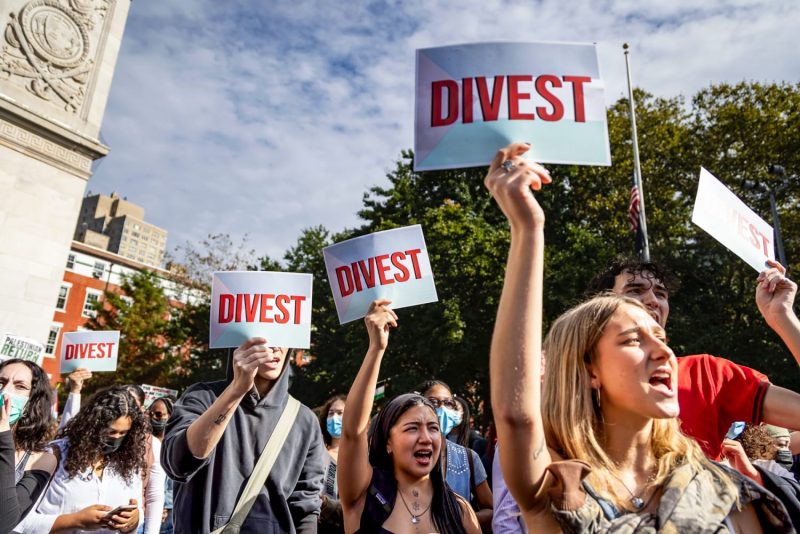
Unlocking the Controversy: Why College Protesters are Pushing for Divestment from Israel
In recent years, college students across the country have been actively involved in advocating for their institutions to divest from ties to Israel. This movement, largely propelled by pro-Palestinian student groups, has sparked intense debates on campuses and has drawn both support and opposition from various sectors of the community.
The call for divestment from Israel stems from the Israeli-Palestinian conflict, a long-standing and complex issue that has deep historical, political, and cultural roots. Supporters of the divestment movement argue that by maintaining financial ties with companies that operate in or support Israel, colleges and universities are indirectly contributing to what they view as human rights violations and injustices against the Palestinian people.
On the other hand, opponents of the divestment movement often argue that such actions oversimplify the complexities of the conflict and undermine Israel’s right to exist as a sovereign state. They contend that divestment campaigns can be divisive, inflame tensions on campus, and hinder efforts to promote constructive dialogue and understanding between different communities.
Understanding what it means for colleges and universities to divest from ties to Israel involves grasping the concept of divestment itself. Divestment is essentially the act of selling off or abstaining from investing in companies, industries, or countries that are believed to be engaging in unethical practices or human rights violations. In the context of the Israeli-Palestinian conflict, divestment campaigns specifically target companies with alleged ties to Israel’s military occupation of Palestinian territories, its settlement activities, and other practices deemed detrimental to the welfare of the Palestinian people.
For colleges and universities considering divestment, the process involves conducting thorough research to identify any investments that may be linked to Israel or companies supporting Israel’s policies. This often requires collaboration between students, faculty, administrators, and financial advisors to assess the ethical implications of these investments and make informed decisions about potential divestment actions.
While divesting from ties to Israel may resonate with many students and faculty members who are committed to social justice and human rights, it is not without its challenges and complexities. Divestment decisions can have significant financial implications for institutions, potentially affecting endowments, donor relations, and overall financial stability. Moreover, the highly politicized nature of the Israeli-Palestinian conflict means that divestment initiatives can ignite controversy, polarize campus communities, and strain intergroup relations.
Ultimately, the debate over divestment from ties to Israel underscores the important role that colleges and universities play in shaping students’ understanding of global issues, promoting social responsibility, and fostering dialogue and critical thinking. As campuses grapple with the complexities of the Israeli-Palestinian conflict and the ethical implications of their investments, it is crucial for stakeholders to engage in respectful and inclusive conversations that respect diverse perspectives and prioritize the well-being and dignity of all communities involved.
